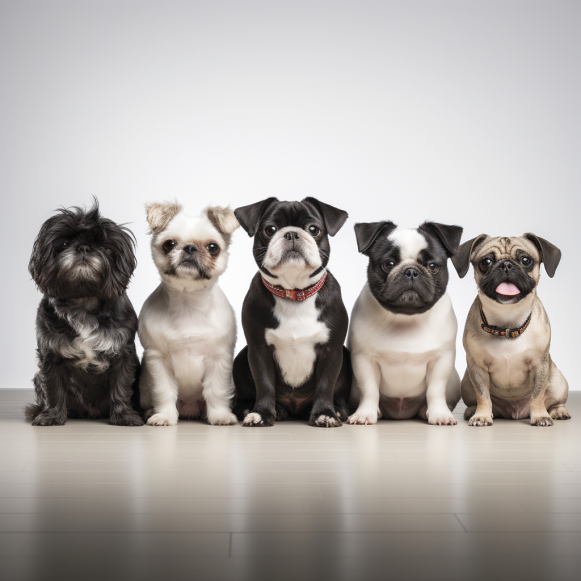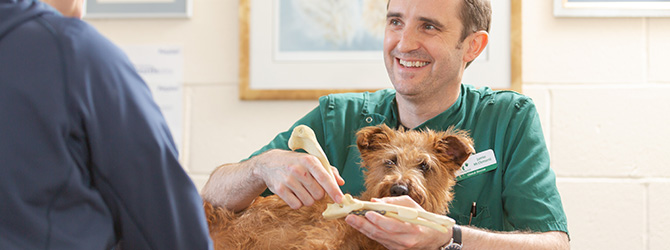Understanding Reverse Sneezing: Decoding Why My Dog is Sneezing?
Reverse sneezing is a common situation that affects most dogs at least once during their lives, but it can be quite scary if you’ve never seen it before. More often than not, reverse sneezing in dogs is not a cause for concern, but a trip to the vet might be in order if your dog is reverse sneezing regularly.
Let’s take a closer look at reverse sneezing in dogs, the causes of it and how it can be treated.
Brief summary
- Reverse sneezing happens when a dog inhales air sharply and noisily
- It's common in dogs and usually lasts 10-15 seconds.
- In reverse sneezing, they're clearing the back of the nose above the voice box.
- Frequent reverse sneezing can be due to allergies, infections, respiratory issues, or irritants like smoke.
- Vets can diagnose this by examining your dog .
- Some breeds, especially those with flat faces, are more prone to reverse sneezing.
 What is reverse sneezing in dogs?
What is reverse sneezing in dogs?
Reverse sneezing, known in clinical circles as inspiratory paroxysmal respiration, is the opposite of a normal sneeze.
Instead of blowing out air through their nose, your dog inhales it. Because of how forcefully this happens, it also comes with a loud noise, often referred to as ‘snorking’.
A usual episode of reverse sneezing will last just 10-15 seconds but can last longer.
Reverse sneezing is common in dogs across all breeds, and whilst it can be a worrying experience for you, it is generally safe and rarely has any negative side effects.
What does reverse sneezing sound like?
Reverse sneezing has a distinct ‘snorking’ noise that can sometimes sound like your dog is choking or struggling to breathe. But don’t worry, it’s just the sound of air being inhaled really hard.
Why do dogs reverse sneeze?
Normal sneezes are caused by trapped dust, air particles or other irritants; this is the same for reverse sneezes. A dog will sneeze normally if they’re getting rid of dust from their nasal passage or if the nasal passage is irritated.
When a dog reverse sneezes, the same reflex is at work, except your dog is trying to get rid of dust from their nasopharynx – right at the back of the nose, just above their voice box.
Is your dog reverse sneezing a lot?
There are many causes of excessive reverse sneezing or reverse sneezing getting worse. These include:
- Allergies
- Infections
- Foreign bodies (seeds, grass, etc. getting stuck in the nose or airways)
- Health problems relating to the respiratory system
- Nasal mites
- Irritants to the nose/throat, including smoke
How is reverse sneezing diagnosed?
Reverse sneezing is usually quite obvious, although taking a video recording to show your vet can be handy. They will perform a thorough physical examination of your dog and will ask some questions about their medical history, including any changes to their environment and other symptoms such as coughing or discharge from the eyes or nose. This can help rule out other problems, including allergies. The veterinary surgeon will usually discuss the frequency and severity of the reverse sneezing to determine whether an underlying cause needs to be investigated.
Your vet may recommend further tests for your dog, including x-rays, ultrasound, rhinoscopy (a small camera inserted up the nose), swabs or blood tests if they suspect an underlying health concern.
Treatment for reverse sneezing
Unfortunately, there’s no one go-to reverse sneeze treatment. If your dog is reverse sneezing excessively, your vet will assess their general condition, and treatment will depend on the underlying cause of reverse sneezing. If reverse sneezing is caused by allergies, for example, treatment could take the form of allergy medication, removing the allergen from your home or even immunotherapy. If there is something stuck up your dog’s nose which is causing the issue, it will need to be removed.
The trick is to get your pet checked if you’re concerned – reverse sneezing is a symptom rather than a condition, and it’s important to know if there’s an underlying health concern.
How to help your dog stop reverse sneezing
Keeping calm is the first step if your dog starts to reverse sneeze. Your dog will pick up on your energy, so staying relaxed can help them feel better, too.
Gently stroking their neck can help soothe them, and covering their nostrils for a few seconds can encourage them to swallow. This can help clear out anything that might be irritating their throat or nose.
Are some dog breeds more susceptible to reverse sneezing?
Yes, some dog breeds are more susceptible to reverse sneezing than others. One study found that certain breeds were more prone to reverse sneezing. Some breeds that tend to experience reverse sneezing more often are

Additionally, brachycephalic breeds with flat faces are more prone to reverse sneezing. Breeds with flat faces include:
These breeds can suffer from reverse sneezing more partly because of their unique facial structure, which includes an overlong soft palate that can sometimes partially block their windpipe, leading to those distinctive reverse sneezing episodes.
Understanding the causes and triggers of reverse sneezing in these breeds can help manage and reduce these episodes for a happier and healthier pet.
Studies into reverse sneezing
One study into reverse sneezing looked at things like the dog's age, what they looked like, what tests the vet did, what the final diagnosis was, and what happened after.
The study found that reverse sneezing affects both male and female dogs, whether or not they’ve been neutered.
When it comes to size, around half of dogs weighing less than 5 kg are likely to experience it. 27% of dogs that weigh between 5kg and 15kg will also suffer from reverse sneezing. The research suggests the bigger your dog, the less likely they are to have it; only 17% of dogs between 15kg and 30kg, and just 7% of those over 30kg, experience reverse sneezing.
It's also worth noting that a large number of dogs, around 63%, also have other breathing issues. However, when a vet saw them, they rarely found any strange health issues. About 57% of the dogs have some problems in their airways that cause reverse sneezing. Some have issues with how their noses and throats are put together, while a few have got something stuck up there.
There's a small group of dogs, around 7%, where the vet can’t find any issue that may cause the prolonged reverse sneezing episodes.
The study also found that reverse sneezing still happens in about 61% of dogs even after getting treated.
So, even if a dog only has reverse sneezing now and then and seems otherwise okay, it's a sign that something might irritate their nose and throat. And the vet should look into it to make sure everything's okay.
Another study looked at 779 dogs over two months and found that 52.9% of dogs in the study had reverse sneezing. Regarding which dogs are more prone to it, female dogs that have been neutered and small dogs—both those under 5kg and those between 5kg and 14kg—are more likely to experience reverse sneezing.
Age also plays a part. Older dogs, particularly those who are over 10, seem to have reverse sneezing more often. Living conditions matter, too. Dogs living in cities and those who don't have other pets around them are also more likely to have it.
As for how often it happens, these dogs don't just have a one-off event. The episodes of reverse sneezing are usually frequent and can be pretty intense, especially if they've been going on for the last 15 days or so.
Need more info?
If you’re concerned your dog may have allergies, further health problems or if you’d like to find out more about reverse/normal sneezing in dogs, have a chat with your vet.
Find your nearest vet using our Find a Vet page, or speak to a vet online using Online Vets.

